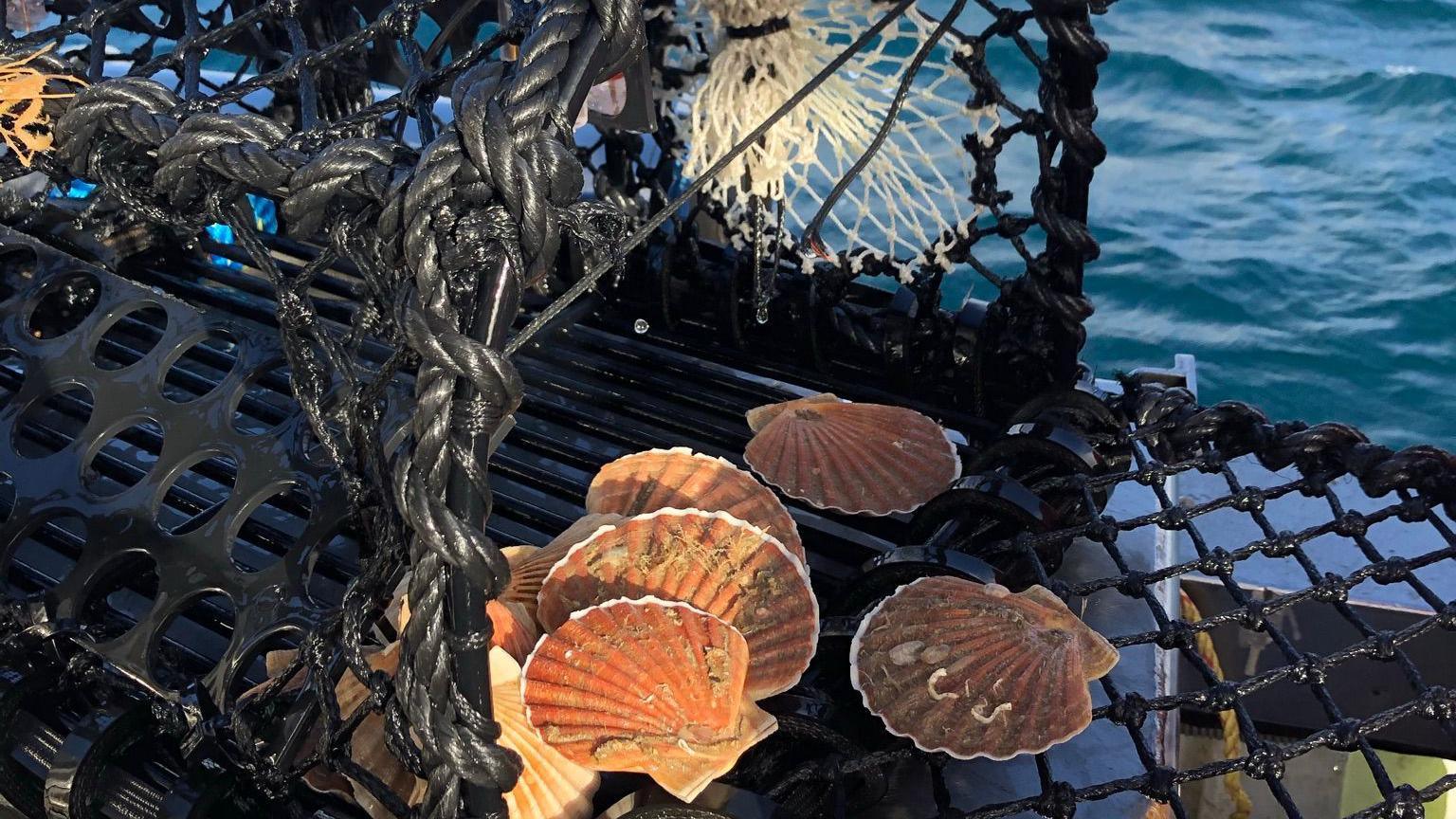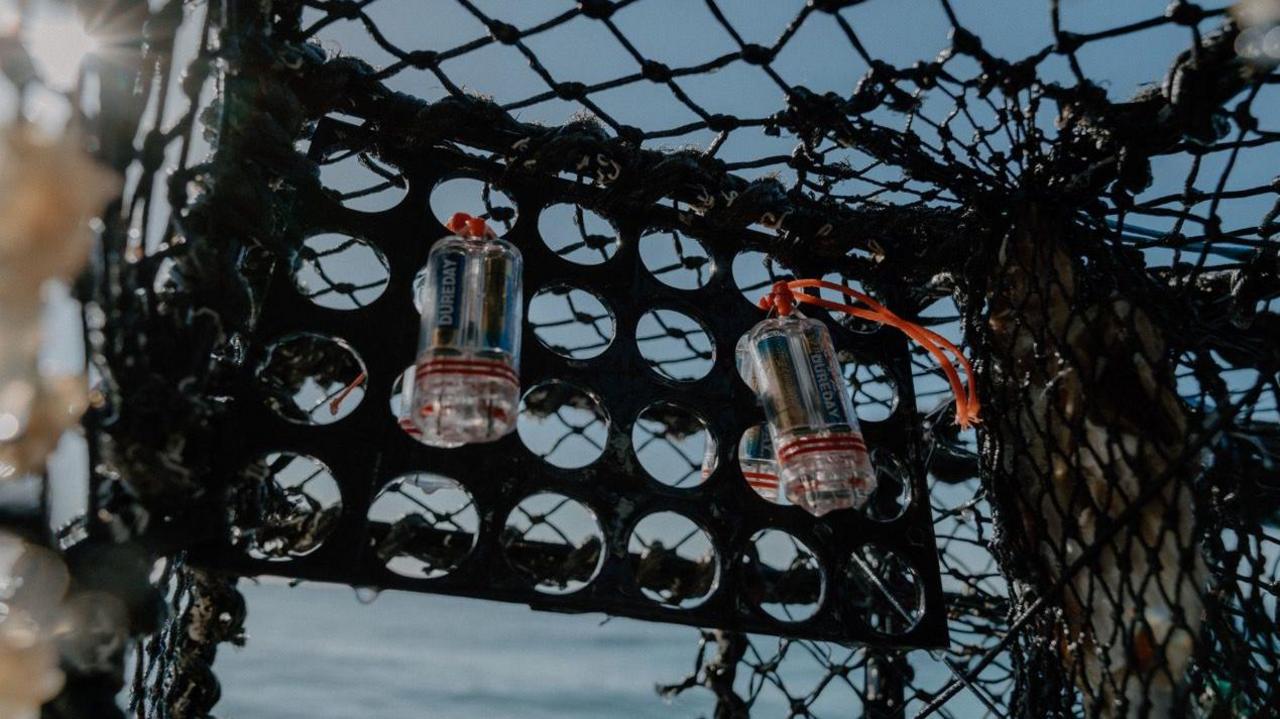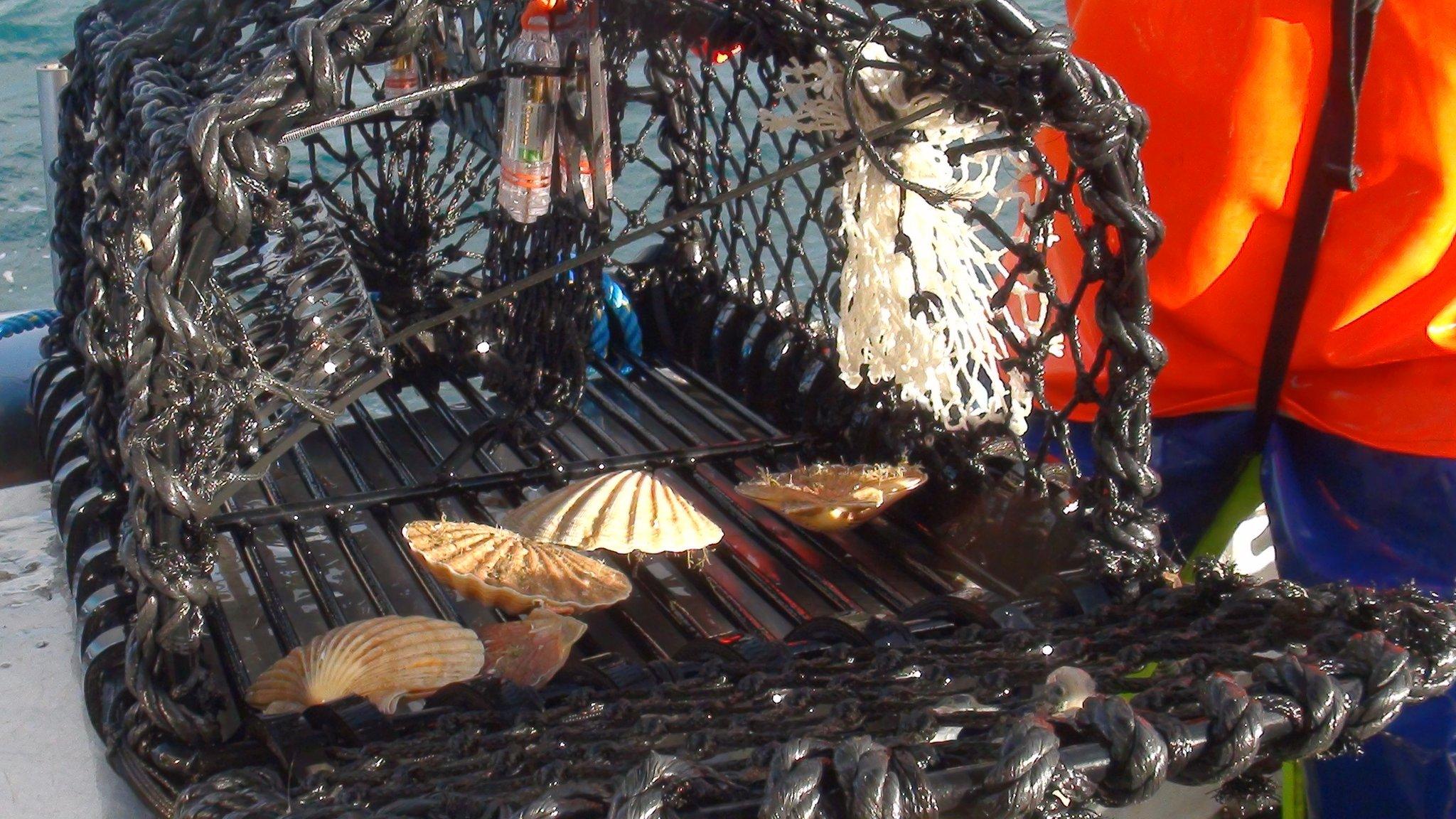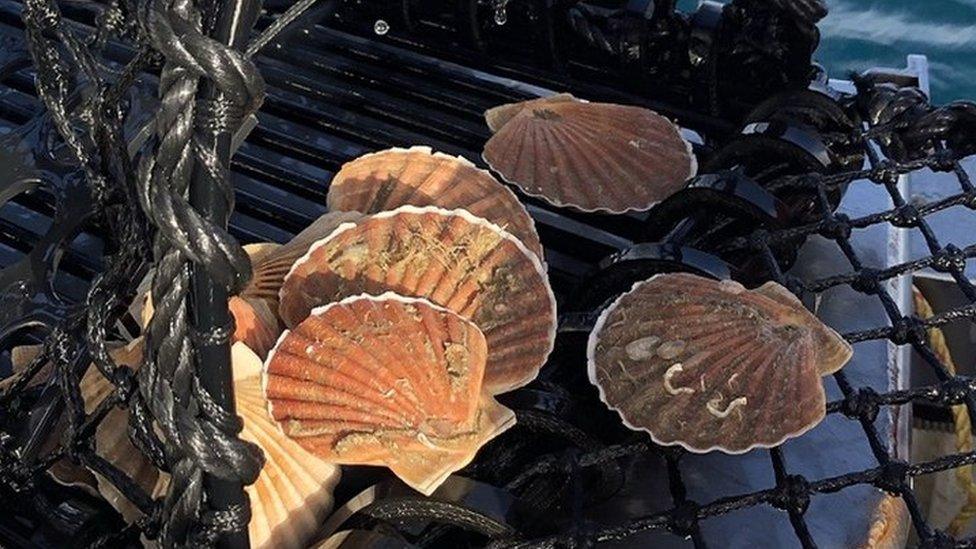Scallops caught with illuminated pots added to menu

The fact scallops could be caught by pots with LED lights was discovered in 2022
- Published
Scallops caught using illuminated crab pots, dubbed "scallop discos", are now being served in restaurants under the term "disco scallops".
Two years ago, Devon marine scientist Dr Robert Enever discovered the scallops could be caught using the illuminated pots, attracted by LED lights.
In the UK, around 95% of scallops are caught by dredging, a fishing method that involves dragging heavy toothed metal sleds across the seabed.
Chef Mitch Tonks has added them to menus at several of his sustainable seafood restaurants in the Rockfish group as an seabed-friendly alternative to dredged scallops, as the use of lighted pots is believed to be not as destructive to marine habitats and species.
'Optimises their feeding'
A team from Fishtek Marine worked alongside UK pot makers and colleagues from the University of Exeter to create the pot design and ran extensive trials with fishermen throughout the country.
Dr Enever said: "We don't know what it is about the light. We are trying to work out is what motivates the scallop to go into a trap.
"We think that they are incentivised to swim into the trap to sit under the light because it optimises their feeding."
He added it was believed the lights highlighted the plankton the scallops fed on.
"Coastal potters that normally catch crab and lobster would rarely every see a scallop in their pots, so this is a brilliant way of enabling those fishermen who catch crab and lobster to boost or augment their catch with a premium scallop product," he added.

The pots were developed by Fishtek
Rachel Walker, from the Disco Scallop Collective, said: "I think in the UK the fishing industry has been through a lot especially in recent years... it's been a really rough time for fishermen."
"The fishing community here in Devon is really big and really prolific and the Fishtek marine team were the ones that made the discovery in Devon."
The project received funding from Natural England the UK government's Seafood Innovation Fund, the Crown Estate, the Esmée Fairbairn Foundation, the Fishmongers Company and the Devon Environment Fund.
Follow BBC Devon on X, external, Facebook, external and Instagram, external. Send your story ideas to spotlight@bbc.co.uk, external.
Related topics
- Published19 May 2022

- Published7 June 2022
